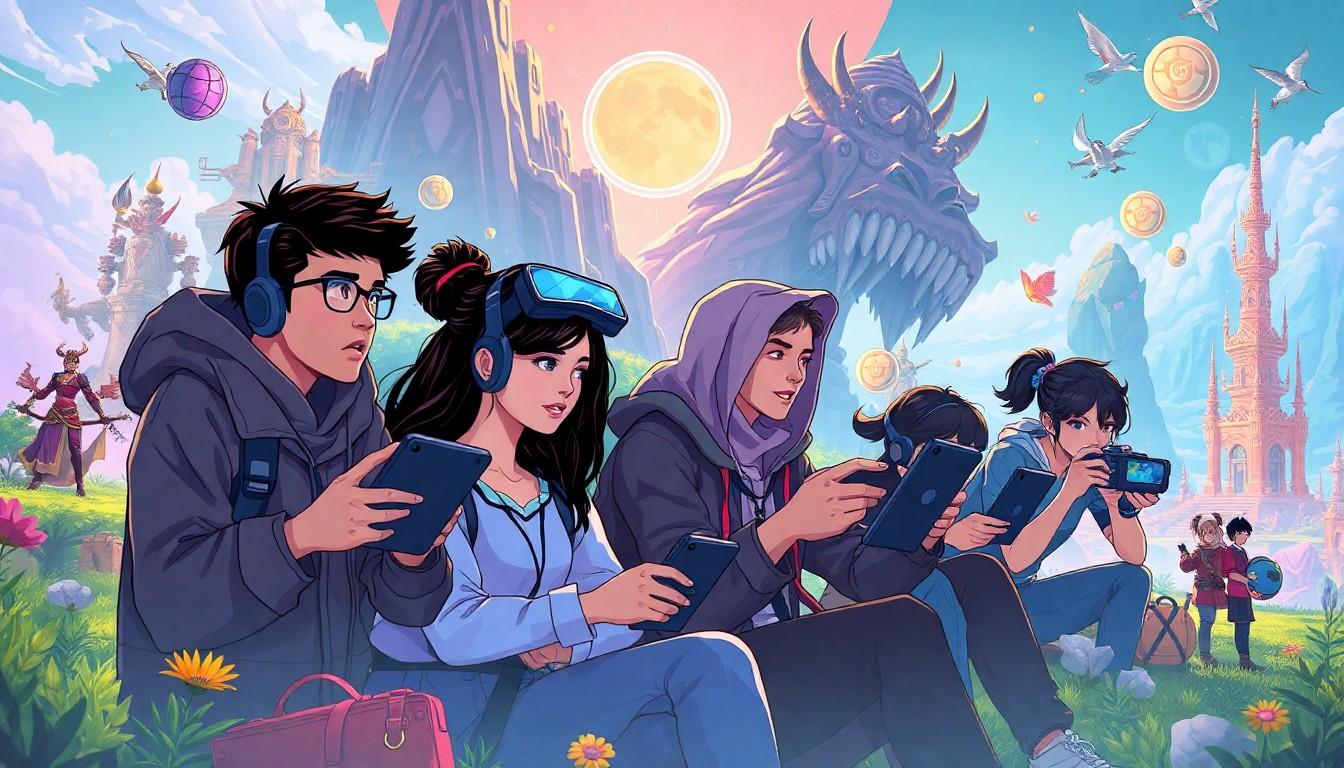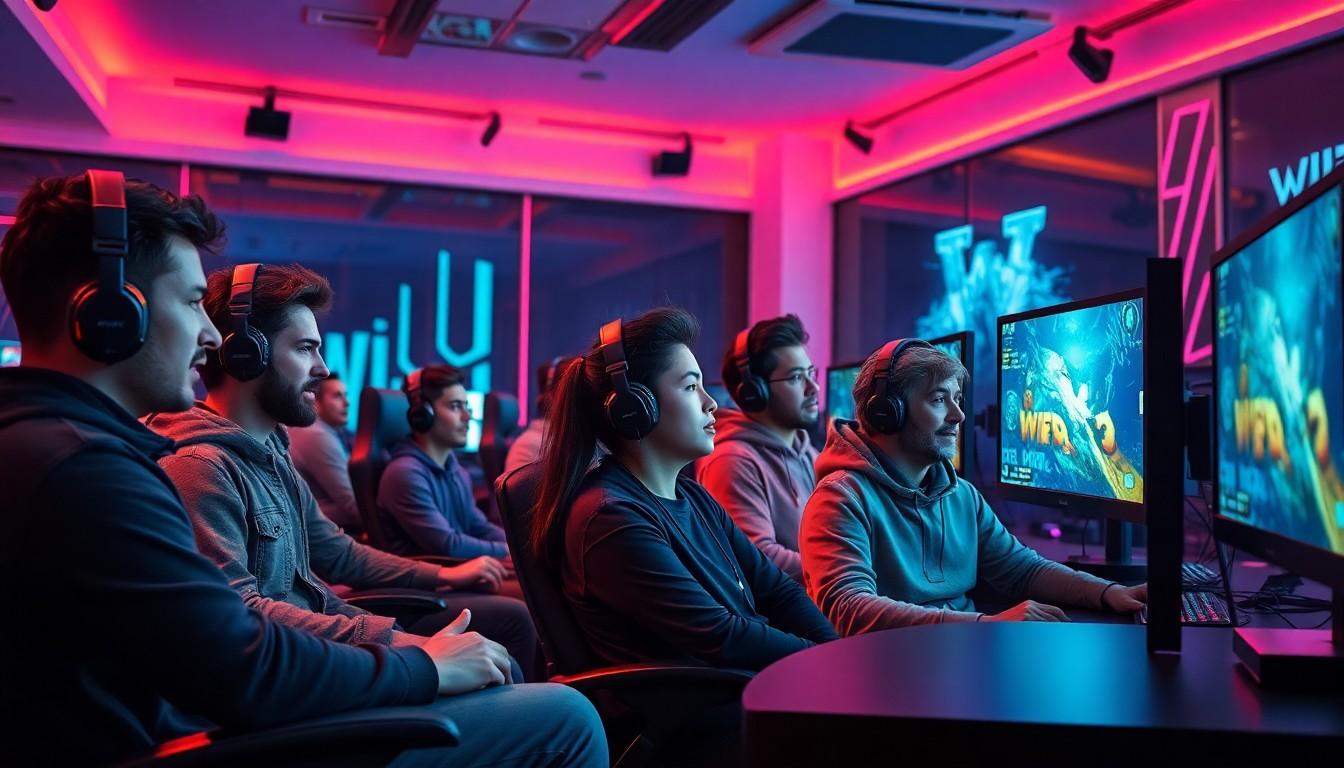Web3 gaming is revolutionizing the way players interact with their favorite games, and it’s a wild ride. Gone are the days of grinding for hours only to lose everything in a server crash. Now, players can truly own their in-game assets, thanks to blockchain technology. Who knew owning a virtual sword could be as thrilling as claiming a rare Pokémon?
Overview Of Web3 Gaming
Web3 gaming leverages blockchain technology to enhance the gaming experience and provide true asset ownership. This evolution offers players an unprecedented level of control over their virtual possessions.
Definition Of Web3 Gaming
Web3 gaming encompasses games built on decentralized platforms that utilize blockchain technology. These games enable players to own, trade, and sell in-game assets securely and transparently. Ownership of assets like skins, characters, and virtual land is verified through non-fungible tokens (NFTs), ensuring players possess true rights over their items. Unlike traditional gaming models, which often restrict ownership, Web3 gaming empowers players in ways previously unseen.
Importance Of Web3 Gaming News
Keeping up with Web3 gaming news is crucial for players and developers alike. Such updates provide insights into emerging technologies and trends shaping the gaming landscape. Knowledge of game releases, platform developments, and community events helps players make informed decisions about their investments and gameplay choices. Furthermore, industry news highlights partnerships and collaborations that may lead to innovative gaming experiences, attracting new players to the ecosystem.
Latest Developments In Web3 Gaming

Web3 gaming continues to evolve rapidly, showcasing exciting trends and innovations. Recent updates shed light on new opportunities for players and developers alike.
New Game Releases
Numerous projects have recently launched, enhancing the Web3 gaming landscape. Titles like Illuvium and Gods Unchained gained attention for their distinctive mechanics and play-to-earn models. Players can experience immersive worlds while retaining ownership of their in-game assets through NFTs. Developers increasingly focus on integrating blockchain technology into gameplay, ensuring transparency and security. Upcoming titles promise to offer deeper engagements, merging social interactions with economic incentives.
Major Partnerships And Collaborations
Significant collaborations are reshaping the Web3 gaming space. Companies like Animoca Brands and Ubisoft recently joined forces to create innovative gaming experiences. These alliances aim to leverage blockchain technology, thereby enhancing player engagement. Upcoming partnerships with technology firms aim to improve infrastructure, making Web3 games more accessible. Game developers are increasingly turning toward cross-platform integrations, allowing players to interact seamlessly across various ecosystems.
Trends Shaping Web3 Gaming
Web3 gaming continues to evolve, significantly impacting player engagement and gameplay dynamics. Several key trends are currently shaping this innovative landscape.
Rise Of Play-To-Earn Models
Play-to-earn models are gaining prominence within the Web3 gaming ecosystem. These models allow players to earn tangible rewards while playing, transforming gaming into a potential income source. Players engage deeply in games like Axie Infinity and Decentraland, where they can earn cryptocurrencies or valuable NFTs. By offering financial incentives, these models attract diverse players who seek enjoyment and monetary rewards. As economies within games flourish, player communities strengthen, creating vibrant ecosystems fueled by mutual interests.
Integration Of Blockchain Technology
Blockchain technology plays a pivotal role in the development of Web3 gaming. This technology ensures secure transactions and transparent ownership of in-game assets. Players benefit from complete control over their unique items, evidenced by the use of non-fungible tokens (NFTs). Developers leverage decentralized platforms to enhance accessibility and create immersive experiences, giving players a stake in the game world. With growing partnerships between gaming companies and blockchain firms, the integration of this technology fosters innovation and streamlines the gaming experience.
Challenges Facing Web3 Gaming
Web3 gaming faces several challenges that could hinder its growth. Addressing these obstacles is essential for the industry to thrive.
Regulatory Issues
Regulatory issues present significant hurdles for Web3 gaming. Governments worldwide are still determining how to classify and regulate blockchain technology and cryptocurrencies. Ambiguity in regulations can slow down development and deter investments in gaming projects. Some countries impose strict rules, limiting the ability of gaming companies to operate freely. Complying with different jurisdictions’ laws complicates matters, creating inconsistent user experiences. Innovative startups may struggle to navigate this patchwork of regulations while trying to deliver engaging gaming experiences. Successful navigation of these issues is vital for the sector’s sustainability and potential expansion.
Scalability Concerns
Scalability concerns also challenge Web3 gaming’s future. Current blockchain networks often face congestion, which impacts transaction speed and game performance. High transaction fees can dissuade players from participating in play-to-earn models. As the player base expands, maintaining a seamless gaming experience becomes increasingly difficult. Solutions like layer-two scaling and alternative blockchain protocols are being explored to address these limitations. Effective scalability measures are crucial for supporting unique in-game assets and ensuring smooth interactions. Innovations in this space may attract more players and enhance overall engagement within Web3 gaming.
Conclusion
Web3 gaming is redefining the landscape of player engagement and ownership. With the rise of play-to-earn models and the integration of blockchain technology, gamers are experiencing a shift toward more rewarding and immersive gameplay. The excitement surrounding new releases and partnerships indicates a vibrant future for this sector.
However, challenges like regulatory hurdles and scalability issues remain. As the industry continues to evolve, staying informed on the latest developments will be essential for players and developers alike. Embracing these changes could lead to a more dynamic and fulfilling gaming experience, paving the way for a new era in entertainment.




